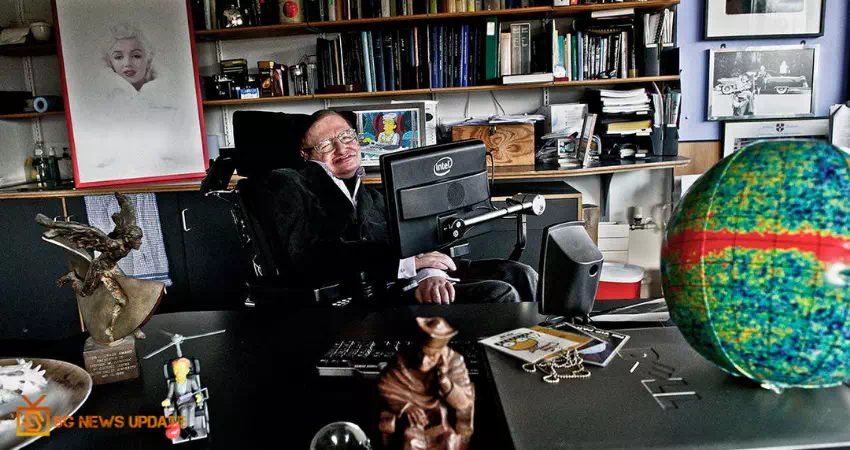
One of Stephen Hawking's acclaimed hypotheses has been validated after scientists noticed ripples made in space-time by the combination of two black holes. The hypothesis was first proposed in the year 1971 that guaranteed that it was incomprehensible for a black hole to diminish in size over the long run. The hypothesis depended on Einstein's theory of relativity that characterized gravitational waves and black holes.
Physicists have consistently been in wonder of the black hole region theory as it's anything but a comparable thermodynamic rule that entropy can't diminish over the long time. It's anything but a predictable speed, and the groundbreaking perceptions further fortify this hypothesis. The examination, driven by astrophysicist Maximiliano Isi from the Massachusetts Institute of Technology, utilized information from gravitational waves delivered when two black holes combined into one.
They split the gravitational wave information that was enlisted by the Advanced Laser Interferometer Gravitational-Wave Observatory (LIGO) into two classes - when the consolidation. They utilized the two estimations to figure the surface areas of the black holes in every class. Analysts found that according to the computations, the complete surface area of the consolidated black hole was more prominent than the amount of the two more modest black holes. This perception fortifies the area law that guarantees that the size of black holes doesn't diminish over the long haul.
Lead author Maximiliano said in an explanation to Live Science, "A black hole's surface area can't be diminished, which resembles the second law of thermodynamics. It likewise has preservation of mass, as you can't decrease its mass, so that is comparable to the conservation of energy."
Space.com features that the bigger secret, notwithstanding, is when scientists attempt to incorporate general relativity with quantum mechanics. As of now, every one of the rules begin to self-destruct and the area law really gets broken.
This is on the grounds that black holes can't shrivel, as per general relativity, yet they can according to quantum mechanics. Hawking had additionally fostered a concept named Hawking radiation where an obscurity of particles are discharged at the edges of a black hole brought about by arbitrary quantum effects. This makes the black hole shrink and dissipate over a course of events a few times more than the age of the universe.
This eliminating could occur over timescales that are adequately long to not disregard the area law for the time being - a little encouragement for physicists. Isi added, "Measurably, throughout an extensive period of time, the law is neglected. It resembles boiling water, you're getting steam evaporation from your skillet, and however on the off chance that you just limit yourself to taking a gander at the vanishing water within it, you may be enticed to say the entropy of the container is diminishing. In any case, in the event that you consider the steam as well, your general entropy has expanded. It's the equivalent with black holes and Hawking radiation."
He closed by expressing, "I'm fixated on these things in light of how perplexing they are. They're incredibly puzzling and frustrating, but simultaneously, we realize that they generally will be the most straightforward articles that exist. This, just as the way that they're the place where gravity meets quantum mechanics, makes them the ideal playgrounds for our comprehension of what the truth is."
Coming Soon...!
Comments (1)
MiethCrem 2021-07-05 06:38:23
Legend